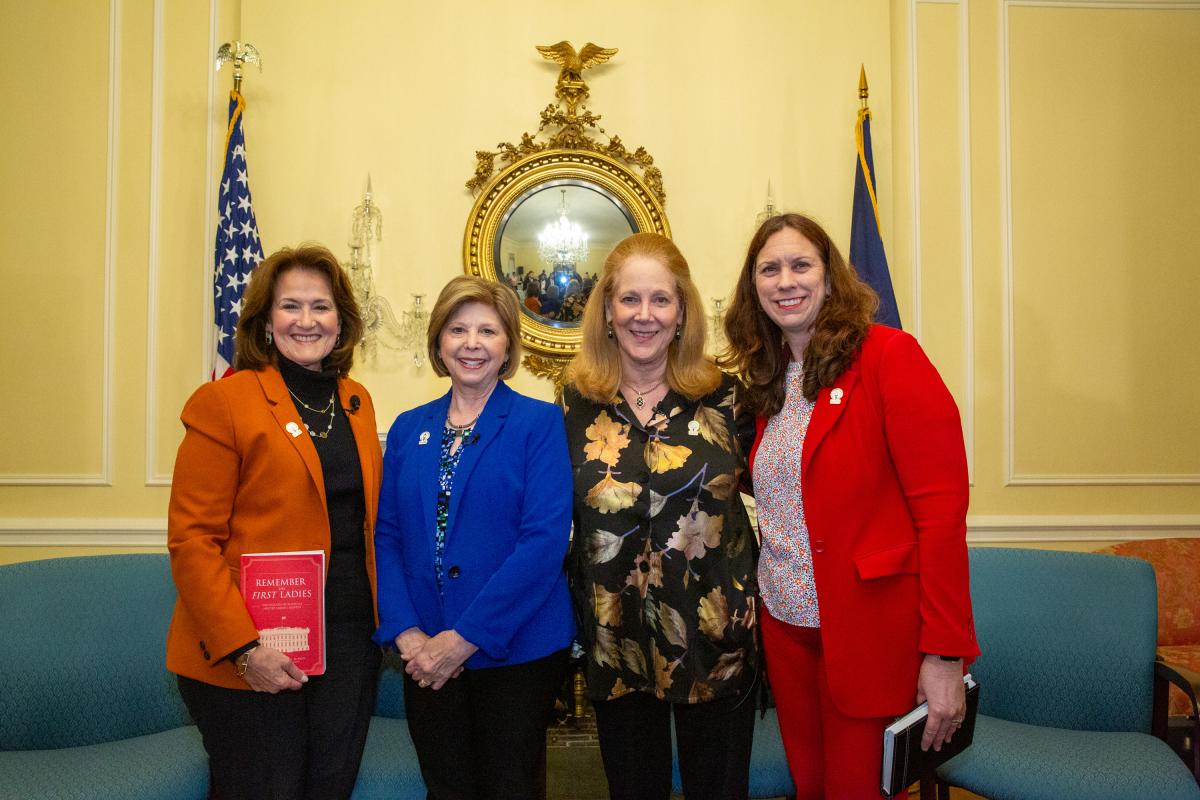
National Archives Remembers America’s First Ladies
By Pete Lewis | National Archives News
WASHINGTON, March 7, 2024 – First Ladies have always been prominent figures in the political and social life of the United States. In celebration of Women’s History Month, Archivist of the United States Dr. Colleen Shogan led a panel discussion at the National Archives Museum in Washington, DC, March 4, focusing on the impact and legacy of America’s First Ladies.
Participants included Diana Carlin, a professor emerita of communication at Saint Louis University; Anita McBride, director of the First Ladies Initiative at American University, School of Public Affairs; and Nancy Kegan Smith, former director of the Presidential Materials Division of the National Archives. The three co-authored the new book Remember the First Ladies: The Legacies of America's History-Making Women, which explores First Ladies’ unique position to influence American society, policy, diplomacy, and life in the White House and illuminates how many of them broke barriers to make a mark on our country and, at times, the world.
The panel discussed the role of the First Lady of the United States. Though it is an internationally recognized position, it has never been officially defined.
“That’s what makes it so powerful. The minute that the President is sworn in at that inauguration platform, an automatic powerful platform is handed also to his spouse. The question is, how do they use it? How do they deploy their influence?,” McBride said. “And you really are freed up by not having a written position description. Each person gets to rewrite how they want to use this role. If we talk about inclusive history in our country, how could we not include the stories of these women, because it is very profound how they have made contributions over the [almost 248] years of our country’s existence.”
The panelists then recalled the important work that many of the First Ladies passionately pursued, such as Eleanor Roosevelt’s work to further New Deal proposals, civil rights, and the rights of women; Betty Ford’s advocacy for the Equal Rights Amendment and the legalization of abortion; Laura Bush support for literacy and education; and Michelle Obama’s championing of childhood physical fitness and nutrition and support for military families.
“You hear more about the First Ladies after a Presidency, oftentimes, than you do the Presidents themselves,” Carlin said. “And a lot of that is because the issues they took up were not political, and they are things that have social impact that can continue.”
The discussion was followed by a question-and-answer session with the audience.
View the event on the National Archives YouTube channel.
Browse the National Archives Catalog for records related to our First Ladies.
Women’s History programming is made possible in part by the National Archives Foundation through the generous support of Denise Gwyn Ferguson.
